Ah yes, Valentine’s Day. I harbor many warm and fuzzy memories of this lovely celebration of romance: playing Mass Effect 3 and eating Funyuns, watching Frasier reruns, getting an early start on my taxes.
Valentine’s Day when I’m single feels sort of like my Aunt Helen has taken the form of a national holiday. “Another year, and no girlfriend, huh Archer? You know you really could get some more sun. Why don’t you use that new cologne I bought you—the label says it’s suave and masculine. Have you tried being less of a dork?”
Well, for Valentine’s Day this year, I’ve decided to fully embrace the lone wolf spirit with my latest Certified Saucy Worthless Trash Literary Roundup (copyright pending). We’re talking books about being alone today, folks!
Across genres and styles, these nine picks all get at an interesting aspect of being alone in its many manifestations, some positive, some negative, most somewhere in between. There’s romantic failure. There’s feeling isolated in a relationship or distant from those you love. There’s finding contemplation and wisdom in the silence. And in one of these books, there are vampires.
Even if you’re madly in love, I hope you might discover an interesting book or two below.
Franny and Zooey by J.D. Salinger
Loneliness Type: Quiet and misunderstood
Feels like: Sitting through a two-hour-long date in which you haven’t said a word.
After J.D. Salinger struck it big with The Catcher in the Rye—a novel just about every high school sophomore born after 1960 has been required to read—he wrote these two short stories Franny and Zooey, which were then collected in this volume. They follow the titular brother and sister, both in their early twenties. In the first, Franny goes on a date with her college boyfriend, who talks at her relentlessly about his petty problems, while her mind drifts, questioning not only his shallowness, but the shallowness of her own life. This leads, as one might imagine, to a breakdown that plays out across the rest of the story and the following story, Zooey, in which her brother, who’s in no great state himself, does his best to help her. It’s a compelling, insightful and unexpectedly uplifting look at the spiritual loneliness that can strike us even when we’re surrounded by others.
“I don't know what good it is to know so much and be smart as whips and all if it doesn't make you happy.”
I Am Legend by Richard Matheson
Loneliness Type: Frightening and booze-drenched
Feels like: You haven’t left your house in days. Everything smells of body odor and brandy. All you want is to look another person in the eyes. Also, there are vampires.
I’ve always pitched Richard Matheson as a concise Stephen King. A writer of mostly horror and supernatural short stories, he was a huge influence on King, and that’s readily apparent when you read his work: the engaging characterization, the introduction of ancient horrors into modern settings, etc. This novella is arguably his most popular work, and while the premise is supernatural, the emotional crux of the story is all too human. A pandemic has wiped out humanity, turning the infected into vampires that prowl the streets at night in search of blood. Robert Neville believes he’s the only human being left—he spends his nights barricaded in his home and his days out hunting the sun-fearing monsters. With his wife and daughter long dead, he’s increasingly suffering from a terrible loneliness that he drowns in alcohol—until one day he spots a woman standing out in the sun.
“Despite everything he had or might have (except, of course, another human being), life gave no promise of improvement or even of change. The way things shaped up, he would live out his life with no more than he already had. And how many years was that? Thirty, maybe forty if he didn’t drink himself to death. The thought of forty more years of living as he was made him shudder.”
The Book of Disquiet by Fernando Pessoa
Loneliness Type: Boring and self-inflicted
Feels like: Living inside a cloud so gray and suffocating you no longer remember what the sunshine even feels like.
I recommend this book with a disclaimer—it’s incredibly boring. It holds a funny place in my heart because I can’t say that I necessarily enjoyed reading it, but it did have an incredible impact on me. Plenty of novels that I had a good time reading have not stuck with me in nearly the way Pessoa’s has. This book, published posthumously, was described as a “factless autobiography” by its author. The first-person narrator spends pages on pages reflecting on the monotony and emptiness of his repetitive life. He lives in Lisbon and spends all his time either alone in his apartment or nearly alone at his office, and back and forth and back and forth. Suffering from intense, unpleasant emotions, he retreats further into solitude, pursuing a philosophy of apathy toward the world. The novel almost feels like slowly sinking in quicksand, as you go further and further into his isolation and sadness. I found myself wanting to shake him awake, to slap him some sense into him, to get him out of this gray cloud and save him from himself. Despite the fact that the novel, frankly, bored me at times, I’ve never read another book that gripped me in that way, one that made me examine the ways that I’m capable of falling into the same self-inflicted loneliness as the narrator, the same retreat from life—and convinced me that I should always fight that impulse.
“But my self-imposed exile from life’s actions and objectives and my attempt to break off all contact with things led precisely to what I tried to escape. I didn’t want to feel life or to touch anything real, for the experience of my temperament in contact with the world had taught me that the sensation of life was always painful to me. But in isolating myself to avoid that contact, I exacerbated my already overwrought sensibility. … I chose the wrong method of escape. I fled via an uncomfortable and roundabout route to end up at the same place I’d started from, with the fatigue of my journey added to the horror of living there.”
Bowling Alone by Robert Putnam
Loneliness Type: Societal and modern
Feels like: A smart person explaining something that you innately already knew but couldn’t put into words.
When this nonfiction book came out in 2000, it caused a big splash. Political scientist Robert Putnam set forth a theory of a American community. The title comes from one of the many examples he uses—declining participation in bowling leagues. When the book was written, participation in bowling had increased over the past two decades, but participation in group leagues had decreased. More people were bowling alone. Putnam traces similar patterns across multiple domains—fewer people participating in parent-teacher associations, veterans’ organizations, philanthropic groups, civic leagues, religious groups, etc.. He argues that these organizations are crucial to creating “social capital,” the ties that bind us together with those we live alongside, and that they help create a strong and healthy society. Putnam argues that this increasing isolation undermines civic engagement and the participation of an informed citizenry that makes a republic like America work. Whether or not you agree with his thesis, it’s hard not to see the fracturing of social groups happening around us, especially two decades later after the book’s publication when technology has made it even easier to isolate oneself. In a shocking twist for a book of political philosophy, Bowling Alone will make you want to get up, go outside and make some friends.
“Serendipitous connections become less likely as increased communication narrows our tastes and interests. Knowing and caring more and more about less and less. This tendency may increase productivity in a narrow sense while decreasing social cohesion.”
Play It As It Lays by Joan Didion
Loneliness Type: Sun-scorched and skeptical
Feels like: Waking up abandoned in a strange and dusty motel.
Published in 1970, this novel follows Maria, an aspiring actress who slouches from catastrophe to catastrophe. Her mother dies in a car wreck that may have been intentional, her daughter ends up in a psychiatric facility, her husband sucks, and so on and so on. What really sets this novel apart is Didion’s commitment to the sparsest of prose—her style mimics the emptiness of the world she’s portraying, the characters who march slowly through what they view as a meaningless and vapid existence. Maria finds herself abused and abandoned by nearly everyone in her life, and unlike many similar novels, she doesn’t even try to find meaning in her suffering. Instead the lonely march just continues. This is definitely not one of the more pleasant picks on this list, but it’s certainly a compelling one.
“I used to ask questions, and I got the answer: nothing. The answer is 'nothing.”
“I am what I am. To look for reasons is beside the point.”
The Metamorphosis by Franz Kafka
Loneliness Type: Grotesque and brutal
Feels like: Everyone staring at you with looks of unmitigated disgust.
This one’s a certified classic for a reason. Gregor Samsa wakes up, finds that he’s inexplicably turned into a gigantic gross bug, and his disgusted family keeps him locked in his room. As with most of Kafka’s work, it’s an unforgettably weird and repulsive look at man’s isolation, the casual cruelty of humanity, and the absurdity of life. It’s hard to imagine a more isolating experience than to become a literal bug thing that disgusts even those who should love you the most, and Kafka, of course, turns the scenario into a remarkably strange and darkly hypnotizing tale, as Gregor comes to find himself a malformed burden on his family.
“I cannot make you understand. I cannot make anyone understand what is happening inside me. I cannot even explain it to myself.”
Less Than Zero by Bret Easton Ellis
Loneliness Type: Gross and cynical
Feels like: Driving down a long freeway that never seems to end.
Bret Easton Ellis was 21 when he wrote this, his debut novel which went on to critical and commercial success and turned the young man into a successful novelist. When I was 21, I bought a used 2003 Honda Accord. We all have our own achievements, I guess. Anyway, this novel follows Clay, a rich college student who returns to his hometown, Los Angeles. Clay bounces from pointless party to pointless party, empty conversation to empty conversation, awash in a world of depravity and drugs, neither of which seem to do anything to wake Clay or his friends from their isolating stupor. This is about people with enough money to keep covering up their inner ugliness with expensive clothes, jewelry, fancy cars and designer drugs, but when the party ends, the loneliness in their hearts returns stronger than ever.
“I come to a red light, tempted to go through it, then stop once I see a billboard sign that I don’t remember seeing and I look up at it. All it says is 'Disappear Here' and even though it’s probably an ad for some resort, it still freaks me out a little and I step on the gas really hard and the car screeches as I leave the light.”
The Conspiracy Against the Human Race by Thomas Ligotti
Loneliness Type: Cosmic and hopeless
Feels like: Staring into your blank, hopeless face in the mirror … and then it begins to smile at you.
When I was eighteen, I loved the show True Detective. I fancied myself a short, pale, weird-looking version of Matthew McConaughey, spouting nihilistic mantras about the hopelessness of humanity with a Marlboro Red between my lips. (Yes, I was, in fact, an insufferable little man.) True Detective was how I discovered this nonfiction book by celebrated horror writer Thomas Ligotti. The first season of the show took heavy inspiration from Ligotti, particularly in McConaughey’s monologues about the “thresher” of existence. The Conspiracy Against the Human Race is an antinatalist philosophical treatise, meaning that it’s a book about how existence is misery, consciousness is pain, and life is so unbearable that to procreate is an immoral act. Yeah, it’s real cheery. I can’t say I agree with Ligotti’s brutal view of humanity, but I can say that it makes for haunting reading. His pessimistic vision is unflinching and just as frightening as his horror fiction, if not more so. I would say it’s the least pleasant book on this list. So if you feel like your life isn’t sad enough right now and you could use a large, bitter dose of philosophical pessimism then this is the book for you.
“This is the tragedy: Consciousness has forced us into the paradoxical position of striving to be unself-conscious of what we are—hunks of spoiling flesh on disintegrating bones.”
“Every human activity is a tack for killing time.”
The Silent Life by Thomas Merton
Loneliness Type: Peaceful and content
Feels like: Sitting on a hillside, watching the sunrise.
Now let’s take a drastic and much-needed turn from the misery of Thomas Ligotti toward the wisdom of a different Thomas. Merton was best-known for his 1948 memoir, The Seven Storey Mountain, which recounts how his journey from a confused, passionate, adrift young man to a Trappist monk. The Silent Life, published in 1957, is the work of a more mature writer, one who has settled into his life at a rural monastery. Whether you have any belief in God or interest in religion, Merton’s reflections on a life spent largely in silent contemplation retain a fascinating beauty. He elaborates on the insights he’s found in quiet and solitude, as well as the community he’s formed with his fellow monks, despite most of their days being spent in silence and prayer. Despite not being anything close to a monk myself at the moment, I find it inspiring and I’ve turned to Merton’s reflections many times. When I’m left alone and the silence feels oppressive and a painful loneliness lurks, I try to still my mind and search for the same wisdom he did.
“If you go into solitude with a silent tongue, the silence of mute beings will share with you their rest. But if you go into solitude with a silent heart, the silence of creation will speak louder than the tongues of men or angels.”




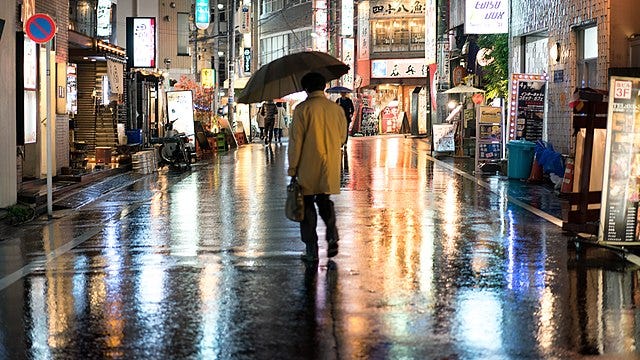
![Franny and Zooey [Book] Franny and Zooey [Book]](https://substackcdn.com/image/fetch/$s_!oJ4g!,w_1456,c_limit,f_auto,q_auto:good,fl_progressive:steep/https%3A%2F%2Fsubstack-post-media.s3.amazonaws.com%2Fpublic%2Fimages%2F4b4d9dde-a9a8-48ea-8857-4769e2e1a172_562x1000.jpeg)

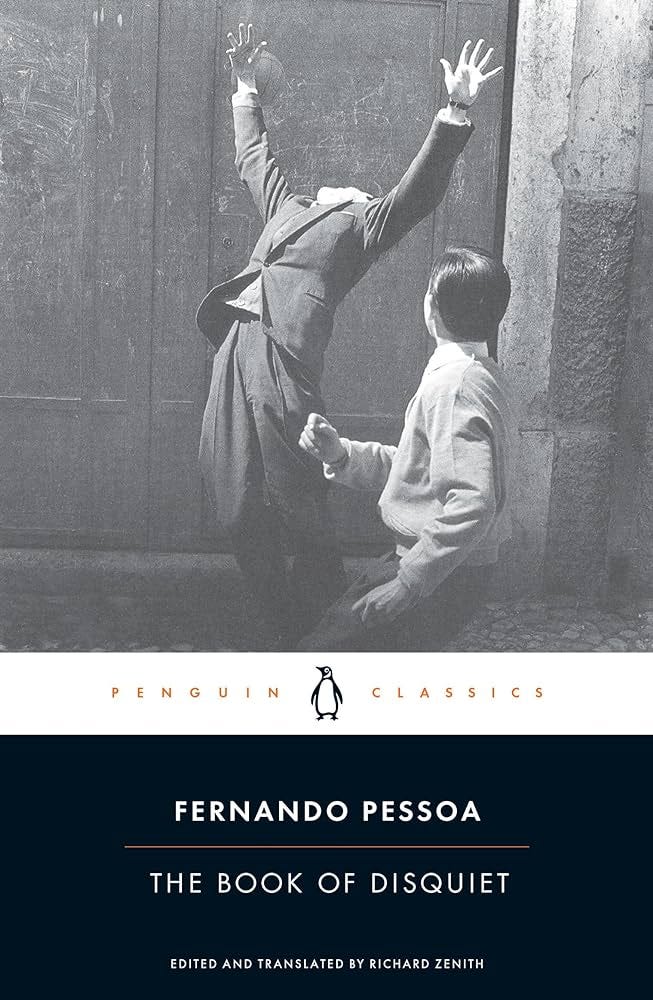
![Bowling Alone: The Collapse and Revival of American Community [Book] Bowling Alone: The Collapse and Revival of American Community [Book]](https://substackcdn.com/image/fetch/$s_!EVEP!,w_1456,c_limit,f_auto,q_auto:good,fl_progressive:steep/https%3A%2F%2Fsubstack-post-media.s3.amazonaws.com%2Fpublic%2Fimages%2F5dfde431-88cf-4042-8c22-760aefef3f57_667x1000.jpeg)
![Play It As It Lays: A Novel [Book] Play It As It Lays: A Novel [Book]](https://substackcdn.com/image/fetch/$s_!pq_i!,w_1456,c_limit,f_auto,q_auto:good,fl_progressive:steep/https%3A%2F%2Fsubstack-post-media.s3.amazonaws.com%2Fpublic%2Fimages%2F509429ba-febc-411d-a2f4-f287ee68af35_1650x2475.jpeg)
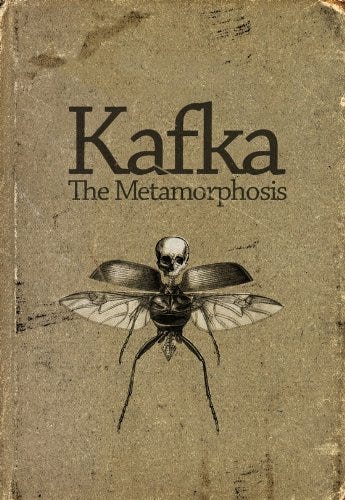
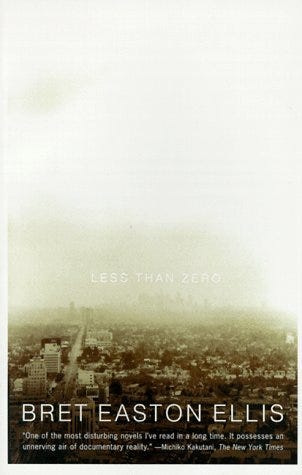
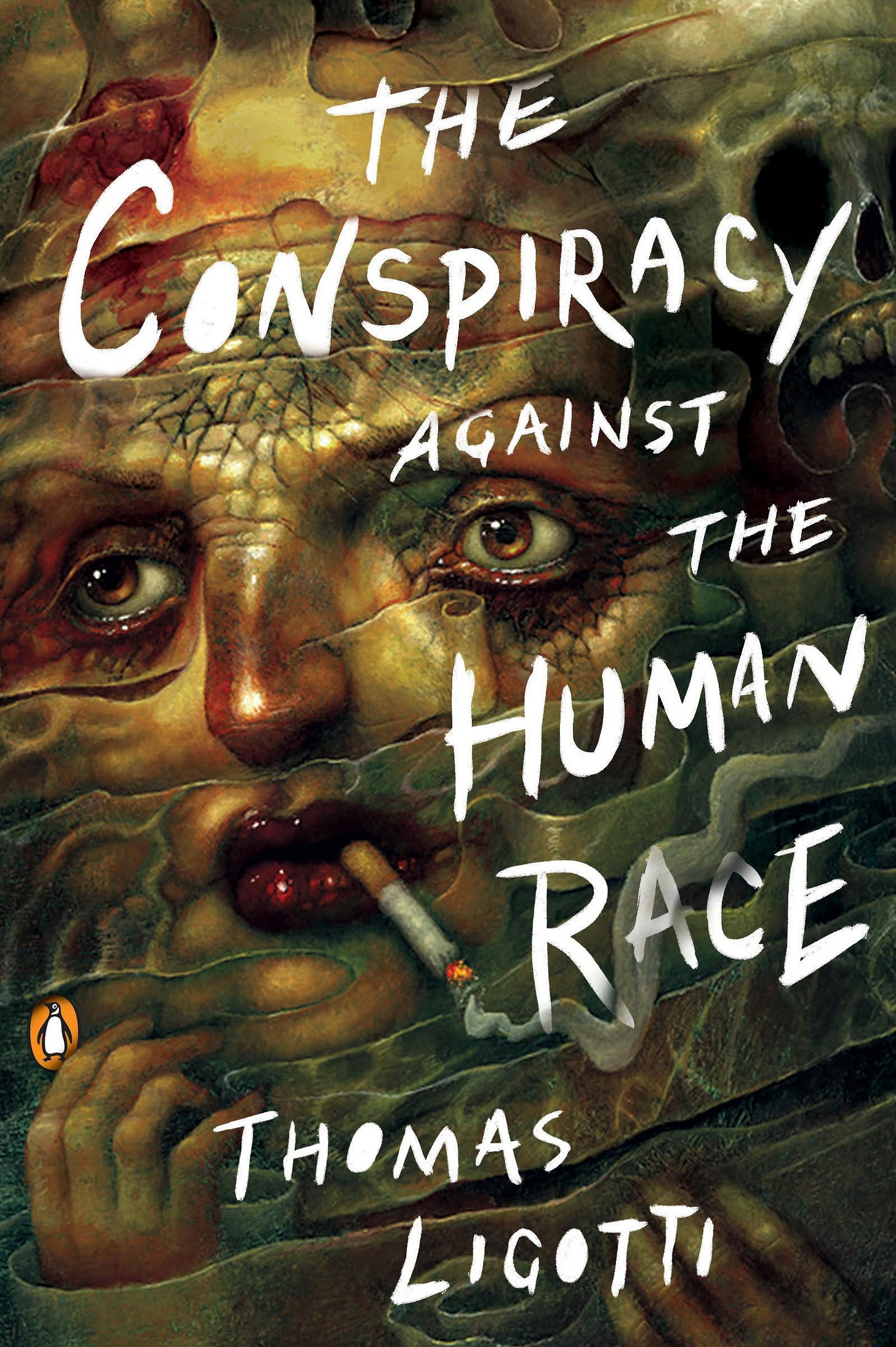

I love your "loneliness types." Great list.
I just saw the Bowling Alone has been "revised and updated" to include social media. Things have changed so much since 2000-in retrospect such an innocent time when we actually did communicate in person-I'm wondering if it woudn't seem dated regardless.
This is the second time in the past week the book Less Than Zero has been mentioned to me. Before that I didn’t even know it was a book. Weird. Guess that means I better read it.